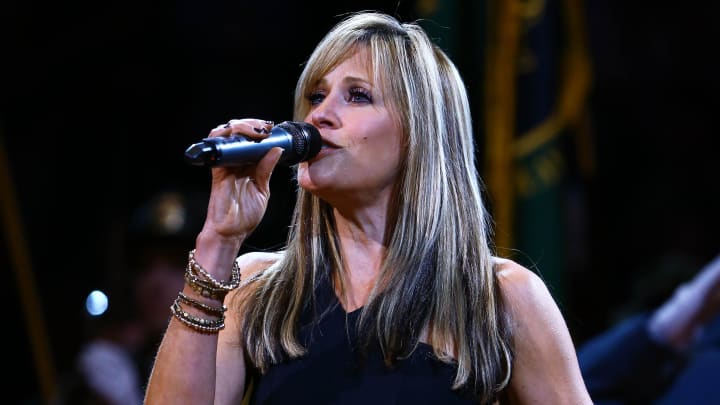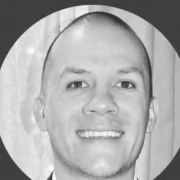Lilian Garcia On The Anniversary Of Her WWE Debut, Vince McMahon And Paul Levesque Eras (Exclusive)

On August 23, 1999, a new era began in WWE. In the opening match of that evening's Monday Night Raw, a new booming voice came across the television, announcing the-then WWE Tag Team champions, The Undertaker and The Big Show. Those weren't the sounds of the legendary and Hall of Famer Howard Finkel. It was the voice wrestling fans would hear from then until 2009 and from 2011-2016, in Lilian Garcia.
Twenty-five years later, it is still a night Garcia will always remember. From sickness to almost leaving the Hilton Coliseum in Ames, Iowa and being involved in two angles on the show provided her a crash course on what life was all about in WWE.
Ahead of her 25-year anniversary, Garcia talked with The Takedown on Sports Illustrated about her WWE debut and when it was actually supposed to start, singing the national anthem days after 9/11, and more.
Editor's note: This interview was edited for clarity and length.
The Takedown: Does it even seem like it was 25 years ago that you made your WWE debut?
Lilian Garcia: They (WWE) actually wanted me to start on SummerSlam, but I was already in the Dominican Republic. I already had another event where I was singing. I even got Montezuma’s Revenge. So it was a horrible week in the Dominican Republic. I had to get a shot on Sunday, which was SummerSlam. I told them I could start on Monday. I was flying back from the Dominican Republic. On Sunday, they had to give me a shot in order to get on the plane because it was that bad. I got to New York, where I lived. I unpacked, repacked, and got back on a flight on Monday morning to go to Iowa. I land in Iowa. One of the people from backstage showed me around, and then Michael Cole came over and took over and started showing me around. I'm like, ‘Oh, this is really cool, but I still don't know what I'm doing’.
I think I’m going to do some backstage interviews because that's what we did in the mock-up of the audition. And it wasn't till 3:30 that afternoon that they're like, ‘Oh yeah, you're going to be replacing the legendary Howard Finkel in front of 14 million people worldwide, 20,000 people, sold out arena that will be live. And we know that you have zero training for this job, but welcome to the WWE’. And I'm like, ‘Wait, what’?
I didn't tell anybody that I had Montezuma’s Revenge on top of that. So I was so weak. Then, 20 minutes before going live, they tell me, ‘Oh yeah, by the way, no cue cards’.
I thought I was going to lose it. I think about that moment because I looked at the exit sign and was like, ‘Abort this mission because you're going to make a fool out of yourself.’
I would say God kept me in that seat because I had to take everything. I had to stay there, and I'm so glad I did. I figured it out match by match, but I sounded horrible. I'm so grateful there was no Twitter or Instagram. I would have been raked through the coals because nobody would have known the situation I entered. But I'm so grateful because it put me on top of my game right from the get-go.
The Takedown: You are the only woman to have ring announced for WWE and major MMA organization when you worked for PFL. Do you view yourself as pioneer because of those accomplishments?
LG: If a pioneer is somebody who is the first, yeah, to break ground, like me being the first to announce WrestleMania. What was crazy was that it wasn't even in my mind. I was like, ‘Okay, this is my job, and I'm going to do it’.
It was when I announced my very first WrestleMania, I remember having the orange dress. I am trying to remember what year that was because I can't keep them all straight. But somebody approached me later and said, ‘Do you realize that you just made history?’ And I was like, ‘I did?’ They're like, ‘Yeah, you're the first woman ever to announce WrestleMania and the first Latina’. And I was like, ‘Oh my gosh’.
I'm glad that I didn't put two and two together before that night because I might have been even more nervous trying to prove something, you know, take one for the females. But I think it's really cool. The same thing happened when I got in the PFL. I started announcing, and suddenly, somebody said, ‘You're the first female in-cage announcer.’ And I'm like, ‘Whoa, you're right’.
So again, I don't go after these things to break ground. It just happens. But man, when somebody brings that to me, I am so grateful and honored that out of all the females in the entire world, that's something that I broke ground in, which I don't take lightly.
The Takedown: One of your iconic moments is singing the national anthem on SmackDown after 9/11. Was there hesitation because of everything that was going on in the world? A lot of people weren't ready to watch anything because they were still mourning.
LG: It wasn't difficult to say yes, but it was a gulp: ‘Can I pull this off because I was living in New York City?’
When someone's crying, I'm crying because I feel other people's emotions, and when there's a lot of heaviness in the world, I can feel it. I'm grateful for that because I have a big heart for things, but trying to keep my composure can also be a little disruptive. Backstage, and leading up to it, I'm like, ‘Oh god, Oh god’.
The Rock was like, ‘You got this kid. You can do this. Then, Paul Heyman, I'll never forget him coming up to me and telling me I’ve been training for this since you started singing it in February of 2000. I sang it at WrestleMania that year. I also sang it right before every single event. It was almost like God was preparing me for that circumstance. It would have been a bit too much to throw me in, like the first day on the job. But in that circumstance, it was almost like I got that opportunity the year before to prepare me for 9/11.
The Takedown: You were backstage a couple of months ago for Monday Night Raw for a segment with Samantha Irvin. What made you want to go to the show?
LG: I was emptying my parent's house in Columbia, South Carolina. When I found out they were going to be in Greenville, and Greenville was only about an hour and a half, I'm like, ‘Oh my gosh, it would be so good to see everybody because I hadn't seen anybody in a long time’. I think it was 2020 the last time I went was back there. So I was like, ‘You know what, it's time to return and just say hi’.
So I contacted Triple H, and I'm like, ‘Hey, do you mind if I come by and say hi?’ He's like, absolutely. I get there and see everyone, and I see him. Then he's like, ‘Hey, do you want to be in the show tonight? I have an idea, but I want to run it by you first if you even want to be on’. I'm like, ‘Absolutely. It'd be so much fun to reconnect with fans’.
He came back a little later and was like, ‘I want you to co-announce with Samantha’. I'm like, ‘That would be so cool’.
And that's what happened. The part of me when I was in there, and I put her over was not in the script or anything; I just felt it in my heart, and it just came out. And people were like, oh my god, that was so cool. It was like the passing of the torch moment, which I didn't even think about it that way. It was really neat to see it back—just her excitement. Even when I had my birthday, she texted me, like, ‘You're my idol’.
It's just so sweet. I get to see that and get that respect from other people coming in afterward. She's doing great, and Alicia Taylor's doing great. So I'm proud of both of them.
The Takedown: When you were backstage, what was the environment like under the Paul Levesque regime compared to when you've gone back in the past, under the Vince McMahon regime?
LG: Two different eras. It's just two different ways of managing. There's no wrong, right, better, worse, whatever. It's just two different managers that have their own style. It's just been great on both ends. Think about this product and how long it has lasted. No other TV show has had the number of people that have come through this, like the wrestlers, the announcers, and the fan base you have, from kids to grandfathers. There's no show like this because you have all these different ideas that have come along through the years. A gain, there's no right or wrong. It's just the differences you see in the evolution and maybe even now, with the women; we wouldn't be appreciating them now more and what they're getting to do if we didn't have that era, too. So, it's cool, and things will continue to evolve.
MORE: Vince McMahon Netflix Documentary: Release Date, Start Time, Trailer, How To Watch
